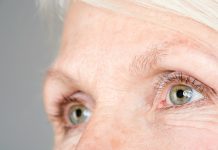
In a recent study, researchers found that sleep problems, which include sleep loss and oversleeping, may increase the risk of stroke.
Previous research has shown that insomnia and sleep apnea are related to stroke risk and recovery from stroke.
But the current study shows that oversleeping can be harmful, too.
The research was conducted by a team from University Hospital Essen in Essen, Germany.
Sleep disorders can be divided into two categories: sleep breathing problems and sleep-wake disorders.
Sleep breathing problems such as sleep apnea can disrupt breathing while asleep.
Sleep-wake disorders such as insomnia and restless leg syndrome can affect the amount of time spent asleep.
In the study, they examined dozens of studies that looked at the link between sleep disturbances and stroke.
They then combined the data of multiple studies in a meta-analysis.
They found evidence linking sleep breathing problems with stroke risk and recovery.
Sleep-wake disorders may increase stroke risk and harm recovery, although there is less evidence to prove so.
The authors suggest that people who have had a stroke or a mini-stroke called a transient ischemic attack, need to be screened for sleep disorders.
In addition, people with sleep disorders may have a higher risk of another stroke or other health problems than people without sleep problems.
The researchers also recommend that sleep apnea be treated with a continuous positive airway pressure machine (CPAP). its use can improve outcomes after stroke.
One author of the study is Dirk M. Hermann, MD.
The study is published in Neurology®, the medical journal of the American Academy of Neurology.
Copyright © 2019 Knowridge Science Report. All rights reserved.



